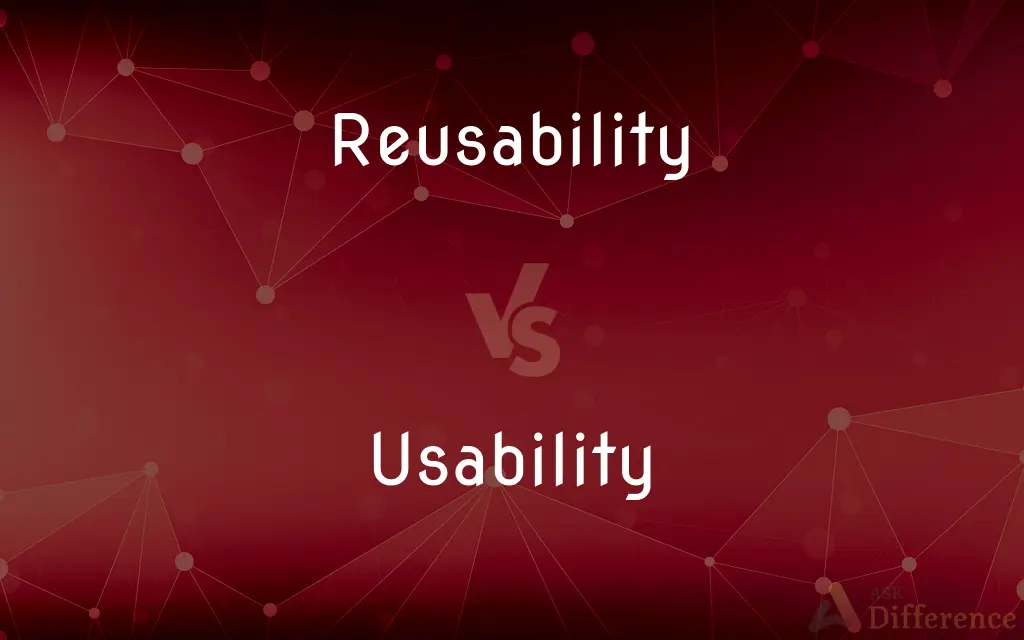Reusability vs. Usability — What's the Difference?

Difference Between Reusability and Usability
ADVERTISEMENT
Compare with Definitions
Reusability
In computer science and software engineering, reusability is the use of existing assets in some form within the software product development process; these assets are products and by-products of the software development life cycle and include code, software components, test suites, designs and documentation. The opposite concept of reusability is leverage, which modifies existing assets as needed to meet specific system requirements.
Usability
Usability can be described as the capacity of a system to provide a condition for its users to perform the tasks safely, effectively, and efficiently while enjoying the experience. In software engineering, usability is the degree to which a software can be used by specified consumers to achieve quantified objectives with effectiveness, efficiency, and satisfaction in a quantified context of use.The object of use can be a software application, website, book, tool, machine, process, vehicle, or anything a human interacts with.
Reusability
To use again, especially after salvaging or special treatment or processing.
Usability
Capable of being used
Usable byproducts.
Reusability
The property or degree of being reusable.
ADVERTISEMENT
Usability
Fit for use; convenient to use
Usable spare parts.
Usability
The state or condition of being usable.
Usability
The degree to which an object, device, software application, etc. is easy to use with no specific training.
Share Your Discovery

Previous Comparison
Host vs. Multitude
Next Comparison
Policy vs. Constitution













































